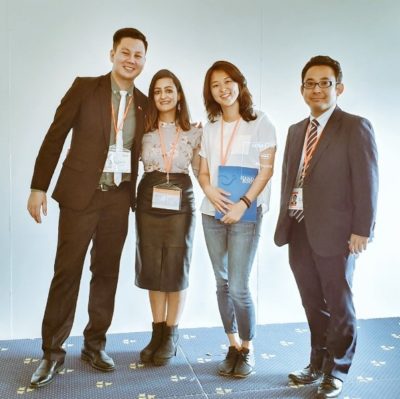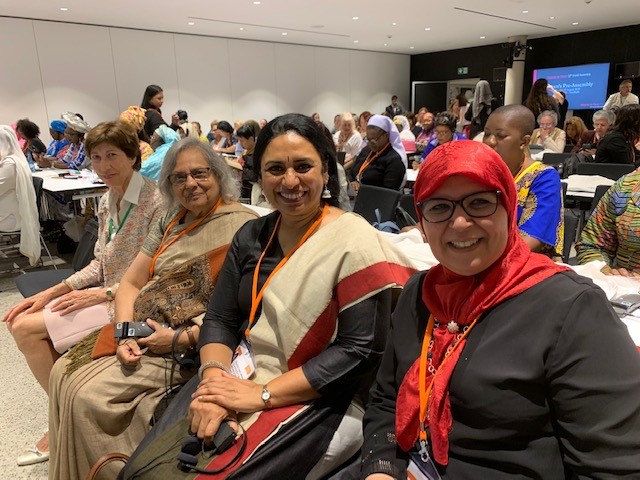Elevating the Critical Role of Women and Youth as Peacemakers
20190819FOR IMMEDIATE RELEASE
(Lindau, Germany) Religions for Peace (RfP) affirms that all human beings are equal in dignity and rights and recognizes that women and youth religious leaders are irreplaceable and co-equal partners in peacebuilding. Women of faith have been involved in RfP since its earliest beginnings at the first World Conference held in Kyoto Japan in 1970, when a women’s caucus was formed and recognized by the RfP governing body.
RfP’s Global Interfaith Youth Network (GIYN) harnesses the energy and commitment of religious youth leaders to advance its mission of multi-religious cooperation for peace. Through these diverse groups of young religious leaders, the GIYN mobilizes youth to confront some of our most urgent challenges. RfP launched the first ever Global Women of Faith Network and Global Interfaith Youth Network in 2001 and 2006 respectively. These networks bring together diverse women and youth of faith to promote their leadership, coordinate strategies and pool resources and capabilities for cooperative action for peace.
Youth and women have served in RfP governance structures from the global level to the grassroots for three decades. Dr. Vinu Aram [Director, Shanti Ashram], who currently serves as Co-Moderator of RfP has served in RfP leadership since she was a youth delegate.
 Dr. Aram stated,
Dr. Aram stated,
“As youth coordinator I have witnessed firsthand the unfolding of countless youth-led initiatives. They include many successful campaigns like RfP’s “Arms Down!” campaign, initiatives to overcome violence against women, creative collaboration to advance peace education and volunteering, multi-religious initiatives to protect the environment and global efforts to increase awareness on the UN’s historic Convention on the Rights of the Child (CRC) and many more.
Active engagement of young people has ensured that RfP remains respectful of the leadership of the youth as well as establish precious intergenerational dialogue on global challenges.” RfP is dedicated to uplifting the voices and promoting the leadership of women and youth, not only because of the hard evidence suggesting that the inclusion of women and youth in peacebuilding processes is shown to increase their sustainability, but because RfP is committed to affirming the equality and dignity of women and youth in all programs and at all levels.
RfP was pleased to provide a platform for women and youth religious leaders to speak with the press about their personal projects and leadership within RfP after the conclusion of the Pre-Assemblies.
This closed “round table” included:
- – Ms. Ela Gandhi – Trustee, Gandhi Development Trust; Co-President, Religions for Peace
- – Ms. Meera Santosh – Religions for Peace-Myanmar (Youth)
- – Mr. Marcelo Leites – Religions for Peace International Youth Committee Member; Executive Director, Eco Justice Global Program, World Student Christian Federation (WSCF)
- – Sister Agatha Chikelue – Co-Chair, Nigeria Women of Faith Network, Religions for Peace
- – Ms. Layla Alkhafaji – Former Iraqi Parliament Member; Member of Political Bureau of Alhikmha Movement; Former International Relations Director of Al Hakim Foundation
- – Hon. Mehrézia Labidi-Maiza – First Vice-President, Constituent Assembly, Tunisia; Secretary, Association for Women’s Progress; Honorary President, Religions for Peace
